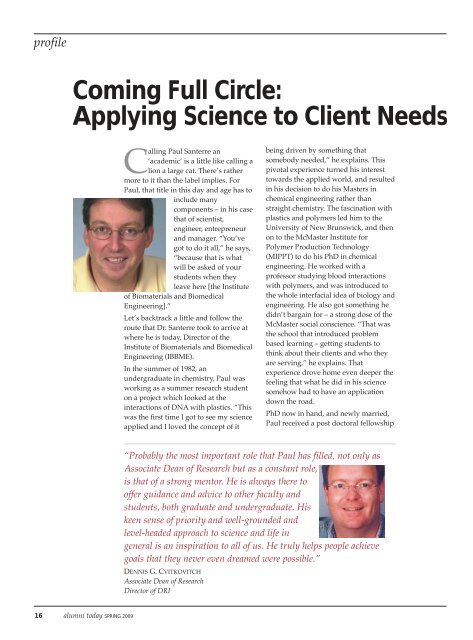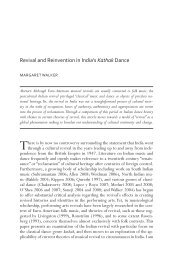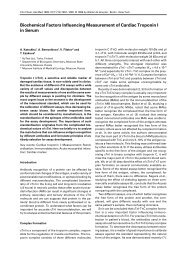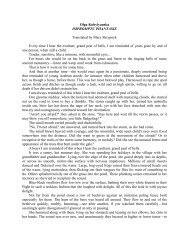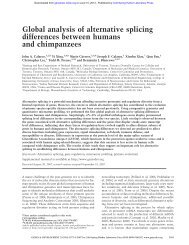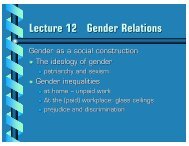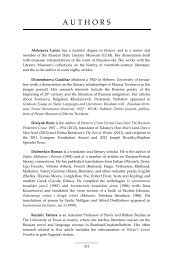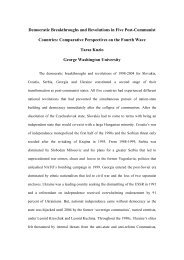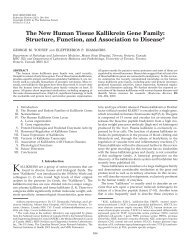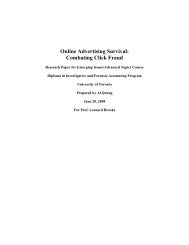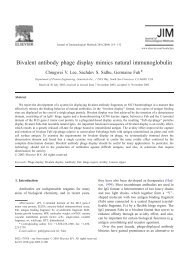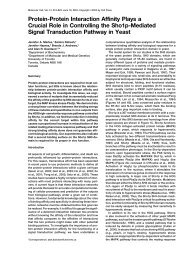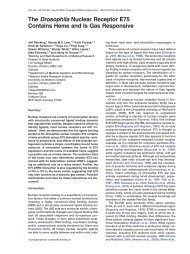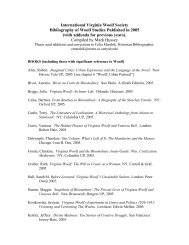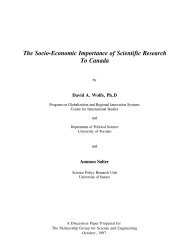Alumni Today - University of Toronto
Alumni Today - University of Toronto
Alumni Today - University of Toronto
You also want an ePaper? Increase the reach of your titles
YUMPU automatically turns print PDFs into web optimized ePapers that Google loves.
pr<strong>of</strong>ile<br />
Coming Full Circle:<br />
Applying Science to Client Needs<br />
16 alumni today SPRING 2009<br />
Calling Paul Santerre an<br />
‘academic’ is a little like calling a<br />
lion a large cat. There’s rather<br />
more to it than the label implies. For<br />
Paul, that title in this day and age has to<br />
include many<br />
components – in his case<br />
that <strong>of</strong> scientist,<br />
engineer, entrepreneur<br />
and manager. “You’ve<br />
got to do it all,” he says,<br />
“because that is what<br />
will be asked <strong>of</strong> your<br />
students when they<br />
leave here [the Institute<br />
<strong>of</strong> Biomaterials and Biomedical<br />
Engineering].”<br />
Let’s backtrack a little and follow the<br />
route that Dr. Santerre took to arrive at<br />
where he is today, Director <strong>of</strong> the<br />
Institute <strong>of</strong> Biomaterials and Biomedical<br />
Engineering (IBBME).<br />
In the summer <strong>of</strong> 1982, an<br />
undergraduate in chemistry, Paul was<br />
working as a summer research student<br />
on a project which looked at the<br />
interactions <strong>of</strong> DNA with plastics. “This<br />
was the first time I got to see my science<br />
applied and I loved the concept <strong>of</strong> it<br />
being driven by something that<br />
somebody needed,” he explains. This<br />
pivotal experience turned his interest<br />
towards the applied world, and resulted<br />
in his decision to do his Masters in<br />
chemical engineering rather than<br />
straight chemistry. The fascination with<br />
plastics and polymers led him to the<br />
<strong>University</strong> <strong>of</strong> New Brunswick, and then<br />
on to the McMaster Institute for<br />
Polymer Production Technology<br />
(MIPPT) to do his PhD in chemical<br />
engineering. He worked with a<br />
pr<strong>of</strong>essor studying blood interactions<br />
with polymers, and was introduced to<br />
the whole interfacial idea <strong>of</strong> biology and<br />
engineering. He also got something he<br />
didn’t bargain for – a strong dose <strong>of</strong> the<br />
McMaster social conscience. “That was<br />
the school that introduced problem<br />
based learning – getting students to<br />
think about their clients and who they<br />
are serving,” he explains. That<br />
experience drove home even deeper the<br />
feeling that what he did in his science<br />
somehow had to have an application<br />
down the road.<br />
PhD now in hand, and newly married,<br />
Paul received a post doctoral fellowship<br />
“Probably the most important role that Paul has filled, not only as<br />
Associate Dean <strong>of</strong> Research but as a constant role,<br />
is that <strong>of</strong> a strong mentor. He is always there to<br />
<strong>of</strong>fer guidance and advice to other faculty and<br />
students, both graduate and undergraduate. His<br />
keen sense <strong>of</strong> priority and well-grounded and<br />
level-headed approach to science and life in<br />
general is an inspiration to all <strong>of</strong> us. He truly helps people achieve<br />
goals that they never even dreamed were possible.”<br />
DENNIS G. CVITKOVITCH<br />
Associate Dean <strong>of</strong> Research<br />
Director <strong>of</strong> DRI


